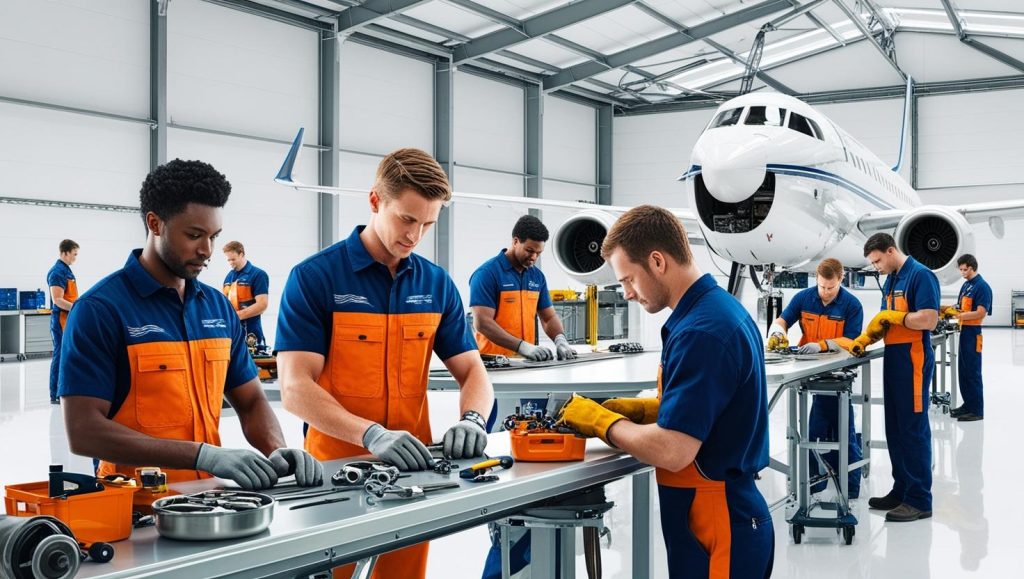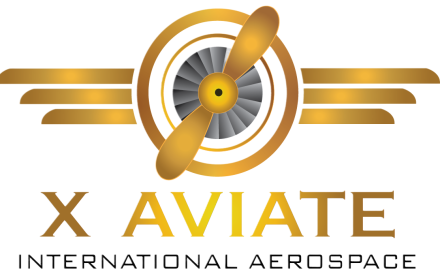
AMO Practical Training
The Aircraft Maintenance Organization (AMO) Practical Training Program is designed to provide hands-on experience in aircraft maintenance, ensuring that trainees gain the technical expertise required for real-world aviation environments. This program focuses on the inspection, servicing, troubleshooting, and repair of aircraft components under the guidance of certified maintenance engineers.
Trainees will work in an approved maintenance organization (AMO), where they will perform maintenance tasks on actual aircraft, including airframe, engine, avionics, and electrical systems. The program follows strict DGCA, EASA, and FAA regulations, ensuring compliance with global aviation safety standards.
This practical training enhances problem-solving abilities, teamwork, and precision, preparing candidates for AME licensing and certification exams. With exposure to industry-standard tools, maintenance procedures, and aircraft documentation, this training ensures job readiness in the aviation maintenance sector.
Training Modules
Introduction to AMO Practical Training – Overview of Aircraft Maintenance Organizations and regulatory standards.
Aircraft Inspection & Servicing – Pre-flight, post-flight, and routine maintenance checks.
Airframe Maintenance – Structural repairs, corrosion control, and fuselage inspections.
Engine Maintenance & Troubleshooting – Diagnosis, repair, and overhaul of aircraft engines.
Avionics & Electrical Systems – Testing and repairing aircraft communication and navigation systems.
Hydraulics & Landing Gear Systems – Maintenance of landing gear, brakes, and hydraulic systems.
Safety Procedures & Compliance – Adherence to DGCA, EASA, and FAA safety standards.
Maintenance Documentation & Records – Logging maintenance activities, technical reports, and compliance documentation.
Eligibility Criteria
Candidates must be Indian nationals aged between 18 to 30 years.
A minimum educational qualification of 10th and +2 with Physics, Chemistry, and Mathematics from a recognized board or university is required.
Fluency in English with strong technical aptitude and problem-solving skills is essential.
Candidates should possess good analytical skills, attention to detail, and a strong understanding of aircraft systems to excel in AMO practical training.
